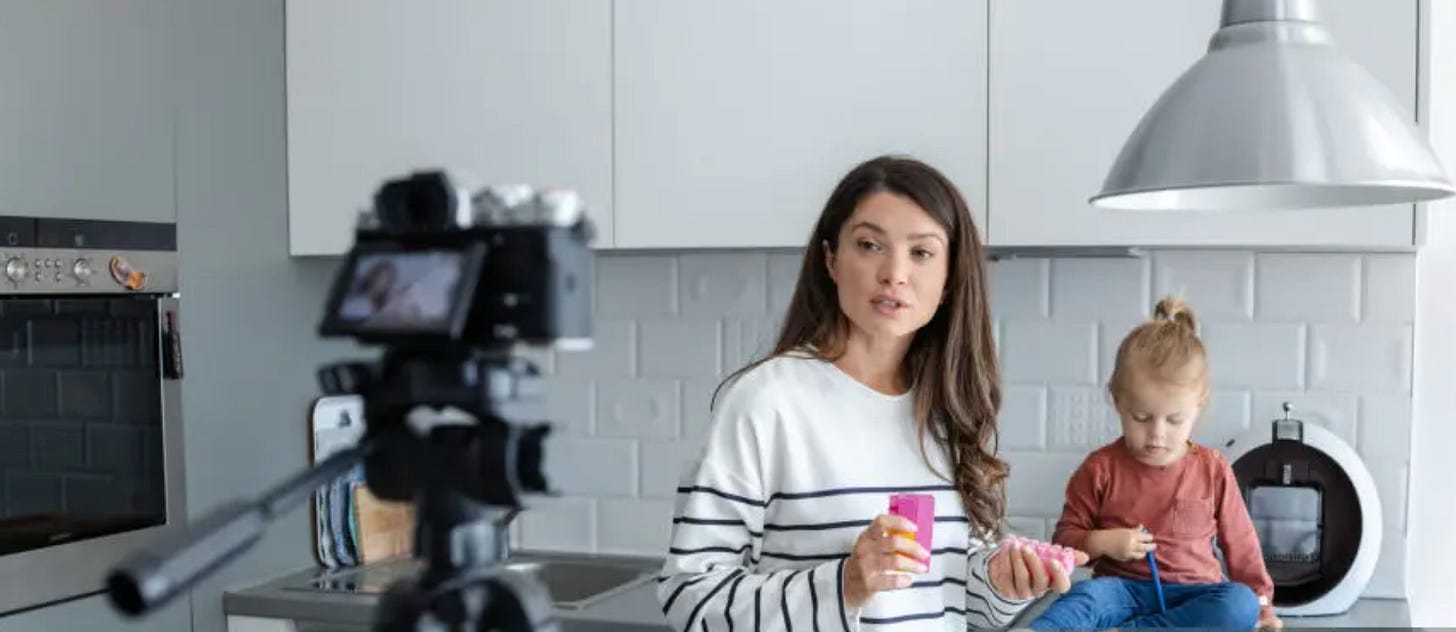Sharenting has got to end.
How can kids learn digital privacy when we are so careless with their images?
I’m the first to hold my hands up here. It’s so natural to want to share our pictures of our children’s first day of school, their hilarious moments, their adorable faces. But I, like most parents, never stopped to think.
In the conversation about smartphones and children, a critical component is what we model as parents. Children are growing up today seeing a lot more of the back of our hands than we ever did of our parents. But this modelling doesn’t just refer to how often we use our phones but what we do on them.
In a world where over 50% of child sexual abuse material (CSAM) originates from images parents have posted online, it’s time we ask ourselves: Why are we sharing their images?
Is It Ever Okay?
Most of us are doing this with good intentions, proud parents, excited grandparents, wanting to connect with friends and family. But many parents are simply unaware of where these photos can end up. Once an image is online, it is no longer fully in our control. AI and deepfake technology mean innocent snaps or holiday pictures can be manipulated into something horrific. And while we might think our account is private, screenshots and data scraping make privacy an illusion.
Some of the most widely circulated CSAM images started out as completely innocent family photos. A toddler playing on the beach, a child blowing out birthday candles, these moments, so special to us, are being stolen and used in depraved ways we don’t want to imagine. Worse still, some predators actively encourage parents to share certain types of images, knowing they can later be exploited.
What About Consent?
Children cannot give informed consent to having their lives shared online. A toddler might love seeing their picture on your phone today, but a 13-year-old might be horrified to discover their entire childhood documented for the world. Imagine a future job interview where an embarrassing picture or a meltdown at a birthday party is just a quick Google search away.
Even if we do ask, is it truly consent? A five-year-old agreeing to a photo doesn’t understand what “going viral” means. A ten-year-old might say yes because they want to please their parents, not because they fully grasp the risks. The law recognises that children cannot enter contracts or make major life decisions, why should their digital privacy be any different?
When Mummy Influencers document their children growing up in front of an online audience they may not realise the negative impact. Cam Barrett shared her experience with the Maryland House of Delegates:
“As a former content kid myself, I know what it’s like to grow up with a digital footprint I never asked for. As my mom posted to the world my first-ever menstrual cycle, as she posted to the world the intimate details about me being adopted, her platform grew and I had no say in what was posted.”
Imagine our children posting embarrassing pictures of us we wouldn’t want shared with the world. We want to teach our children that we value privacy, for that we need to model what we teach.
The Rise of Deepfakes & Digital Kidnapping
Technology is evolving at an alarming rate. AI-generated deepfakes mean that even fully clothed images can be manipulated into explicit content. Last year, Apple removed Nudify apps from the App Store, but with a quick search today, it is clear some are still available:
Why Are We Really Posting?
We need to be brutally honest with ourselves. Are we sharing for them or for us? Are we looking for validation, for likes, for engagement? If we strip it back, what and who does it really serve?
So, What Can We Do?
Always ask for consent. In schools, clubs, or social events, make it a habit to decline unless your child, not you, has given informed, enthusiastic consent. And even then, question whether they truly understand what they’re agreeing to.
Consider waiting until 16. If children can’t legally consent to social media accounts before 13 (and arguably not fully before 16), should we be making that decision for them?
Audit your past posts. Go back through your social media and delete anything that could put your child at risk. If they’re old enough, involve them in the decision.
Educate family and friends. Grandparents and relatives often share photos out of love, but they may not realise the risks. Have conversations about digital safety and set boundaries.
Almost all of us have shared before. We all make mistakes. The best thing you can do now? Wipe it clean. Stop posting. Give your child control over their own digital footprint.
This isn’t about guilt or shame, it’s about awareness. If you don’t know, you don’t know. But now you do. Our children deserve a childhood that belongs to them, not the internet. Let’s give them that.







Brilliant that you have shared this - and that it can be a talking point and supportive of when you might be a lone fish in your family / social circle trying to update everyone's views on these matters. Sometimes people need courage to put in a counter view! So many people just don't think further than their own enjoyment in the moment and as you well point out, it's now even deeper than just the more obvious embarrassing photos or comments.
100%!! I stopped putting my kids on social media for some of the same reasons & a few more… https://dearchristianparent.substack.com/p/why-i-stopped-putting-pictures-of